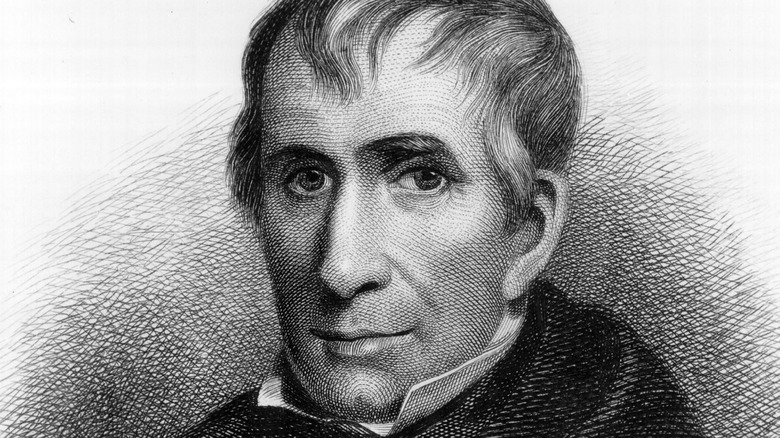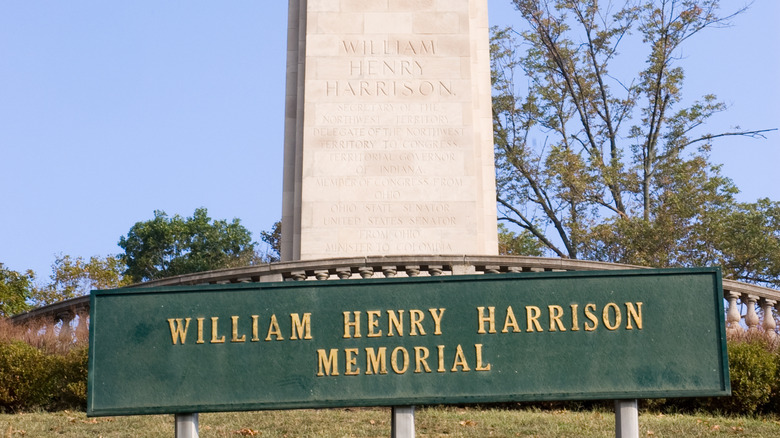This Is The First President To Die At The White House
William Henry Harrison, the ninth president of the United States, was supposed to preside over the country as a salt-of-earth frontiersman (never mind that he was from a wealthy family of slave-owning Virginians, according to White House History). But Harrison — at 68 years old, at that time the oldest man to have been elected president — wouldn't last long enough to leave behind a presidential legacy. The Whig politician died in office just 31 days into his term, apparently from a cold that turned into pneumonia. (A popular theory, according to The New York Times, is that he caught the cold while delivering his lengthy inauguration address in wet, chilly weather.) He was the first president to die in the White House.
The death of this president had major consequences, including ending the Whigs as a major party and settling an ambiguity in the constitution regarding presidential succession. It also led to an historical debate about what really killed William Henry Harrison. Here's what happened when Harrison died, and why it's still important.
Did bad weather kill Harrison, or sewage?
On March 4, 1841, William Henry Harrison gave his inauguration address. The speech went on for two hours — the longest ever given, according to the Library of Congress. Despite the wet, late-winter weather, he refused to wear an overcoat, hat, or gloves, according to The New York Times. When he died on April 4, just after midnight, it's no shock that doctors believed Harrison had succumbed to pneumonia.
Today, however, some experts believe that Harrison died of an entirely different and much more disgusting cause. Washington, D.C. didn't have a sewage system until 1850, and some of its sewage simply flowed into fields — such as the "night soil" marsh just blocks away from the White House water supply. This tainted water would have been a likely source of typhoid and paratyphoid fever. And if Harrison had gotten typhoid, this meant that Harrison's course of treatment — enemas, opium — likely made his condition worse, and led to sepsis.
Whatever the cause, Harrison's death meant that John Tyler quickly became the 10th president of the United States, abandoning the Whig agenda on which his running mate was elected (via The White House). He was the first vice president to take over for a president, and made it clear that he was fully president, not "acting president," as some of his opponents believed he should be called under the Constitution. Tyler's understanding of the office won out, and set a precedent that continues today.

